EMPLOYMENT ACCEPTABILITY OF WOMEN IN PHILIPPINE DOMESTIC SHIPS
The study sought to identify and analyze the gaps in the recruitment and selection process of domestic shipping companies when it comes to female seafarer employment. Specifically, it determined the willingness of the domestic shipping companies in employing women and gathered information on their current employment policies and practices. The study also identified the challenges faced by women when applying for employment onboard domestic vessels. Data was collected through a survey questionnaire and an interview guide. All accredited domestic shipping companies/corporations under MARINA Circular 2006-03 in the year 2018, members of the Philippine Interisland Shipping Association (PISA), members of the Philippine Liner Shipping Association (PLSA), as well as female seafarers working onboard domestic vessels were considered as respondents of the study.
The study found out that most of the domestic shipping companies are willing to employ women
seafarers, however, certain gaps have been identified, such as limiting female employment to the deck
department and/or steward department only; employing them in passenger vessels than in any other
type of vessel; and the belief of ship owners and/or ship managers that women are not strong enough
emotionally and physically leading to the tendency of typically preferring males over females even
when both undergo a recruitment and selection process. Interestingly though, most of the female
seafarers who reported that they were able to get shipboard employment without any difficulty was
because of school tie-ups or family connections in the shipping industry. Included in the study
recommendations are for implementing agencies to take the lead in gender-sensitizing the maritime
academic curricula and training programs of the country; to encourage shipping companies to
establish women-friendly policies; to strictly monitor and implement provisions of the MLC 2006 in
domestic shipping; and to strengthen the link between maritime schools and shipping companies.
0 Comment(s)
Upcoming Event
Research Archives
- MANAGING THE THREATS OF COVID-19 TO SEAFARERS' HEALTH AND WELL-BEING: RESPONSE OF THE PHILIPPINE MARITIME INDUSTRY (PHASE 2)
- PHILIPPINE DOMESTIC MARITIME INDUSTRY'S COMPLIANCE WITH MLC, 2006: CHALLENGES OF IMPLEMENTATION
- ISSUES AND CONCERNS ON THE NON-RATIFICATION OF THE PHILIPPINES OF THE INTERNATIONAL CONVENTION ON STANDARDS OF TRAINING, CERTIFICATION AND WATCHKEEPING FOR FISHING VESSEL PERSONNEL (STCW-F)
- PHILIPPINE MARITIME MANPOWER FACTBOOK 2020 & 2021
- THE CAPACITY OF THE PHILIPPINE MARITIME INDUSTRY TO PRODUCE OFFICERS-IN-CHARGE (OIC) PER STCW REQUIREMENTS: FOCUS ON THE ONBOARD TRAINING (OBT) OF CADETS
- PHILIPPINE EMPLOYMENT LAWS RELATIVE TO SEAFARERS: FOCUS ON THE PHILIPPINE ARBITRATION SYSTEM AND AMBULANCE CHASING
- EMPLOYMENT ACCEPTABILITY OF WOMEN IN PHILIPPINE DOMESTIC SHIPS
- AUTONOMOUS SHIP TECHNOLOGY: ITS IMPLICATIONS TO PHILIPPINE MARITIME INDUSTRY
- REQUIRED NON-TECHNICAL (ESSENTIAL) SKILLS BY EMPLOYERS FOR SHIPBOARD EMPLOYMENT OF MANAGEMENT LEVEL OFFICERS
- PERCEPTION OF NMP FEMALE TRAINEES TOWARDS THE SEAFARING PROFESSION
- HARBOR PILOTAGE IN THE PHILIPPINES A REVIEW OF INTERVENTIONS IN LICENSING, APPOINTMENT AND CAPABILITY BUILDING OF HARBOR PILOTS
- NMP GENDER SENSITIVITY TRAINING FOR SEAFARERS (GSTS) COURSE: A PROGRAM EVALUATION
- SKILLS GAP ANALYSIS OF MARITIME FACULTY IN PHILIPPINE MARITIME HIGHER EDUCATION INSTITUTIONS
- RESPONDING TO THE FILIPINO SEAFARERS’ TRAINING REQUIREMENTS IN THE STCW 2010 MANILA AMENDMENTS: CHALLENGES AND OPPORTUNITIES
Subscribe to our Newsletter
Discover the latest upcoming and ongoing research. Don't forget to pre-register for the upcoming events.
Updates will be notified through your registered email to this portal.

